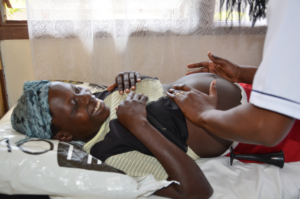
The Empowering Role of Midwifery Healthcare in the Netherlands
verloskundige kampen , or midwives, play a crucial role in the healthcare system of the Netherlands. The country’s unique approach to pregnancy and childbirth has gained international recognition for its emphasis on natural, woman-centered care. Midwives in the Netherlands are highly trained professionals who provide personalized care for women throughout their pregnancy, labor, and postpartum period. In this blog, we will explore the empowering role of midwifery healthcare in the Netherlands.

The History of Midwifery in the Netherlands
The word “verloskunde” translates to “to bring forth life” and is deeply ingrained in Dutch culture. Historically, childbirth was considered a natural and normal event, and women were attended by midwives from their local communities. In the 1800s, the government recognized the importance of midwives in reducing maternal and infant mortality rates and began regulating the profession. This regulation led to the development of a formal education program for midwives, and by 1902, midwifery became a licensed and regulated profession in the Netherlands.
Empowering Women through Education and Choice
One of the main reasons why midwifery healthcare in the Netherlands is so successful is its focus on educating and empowering women. Midwives work closely with their clients to provide them with the necessary information to make informed decisions about their pregnancy and birth. They encourage women to trust their bodies and actively involve them in the decision-making process. This approach not only gives women more control over their birthing experience but also leads to better outcomes for both mother and baby.
In addition to education and choice, midwives in the Netherlands also prioritize personalized care. Unlike traditional hospital settings where women are referred to as a patient and treated as such, midwives see each woman as an individual with unique physical, emotional, and cultural needs. This personalized care creates a safe and comfortable environment for women to discuss their concerns and receive the support they need during this transformative time.
The Dutch Home Birth Tradition
In the Netherlands, giving birth at home is not only an option but also a tradition. The majority of Dutch women choose to give birth at home under the care of their midwife. This practice is rooted in the belief that childbirth is a natural process that does not require medical intervention unless necessary. Midwives are trained to recognize any potential complications and will refer women to hospitals if needed. However, studies have shown that home births attended by midwives have similar or better outcomes compared to hospital births, further highlighting the trust and confidence placed in midwifery healthcare in the Netherlands.
Collaboration and Integration within the Healthcare System
In the Netherlands, midwives work collaboratively with other healthcare professionals, such as obstetricians and gynecologists. This integration allows for seamless referrals and communication between providers, ensuring that women receive the best possible care. Many midwives also work in birthing centers alongside doctors, providing a more holistic approach to pregnancy and birth. This collaboration and integration within the healthcare system contribute to the high-quality care that women receive in the Netherlands.
The Impact of Midwifery Healthcare on Maternal and Infant Outcomes
The Dutch approach to midwifery healthcare has had a significant impact on maternal and infant outcomes. According to a report published by the World Health Organization, the Netherlands has one of the lowest maternal mortality rates in the world at 6 deaths per 100,000 live births. This is significantly lower than the global average of 211 deaths per 100,000 live births. Additionally, the Netherlands has a low rate of medical interventions during childbirth, such as cesarean sections, which can have long-term health implications for both mother and baby.
In conclusion, midwifery healthcare in the Netherlands is a shining example of how empowering women and providing them with personalized care can lead to positive outcomes. The Dutch approach to pregnancy and birth prioritizes education, choice, and collaboration within the healthcare system, creating an environment that promotes physical, emotional, and cultural well-being. Through the dedicated and compassionate care of midwives, the Netherlands continues to set the standard for high-quality and woman-centered maternity care, making it a model for other countries to follow.
